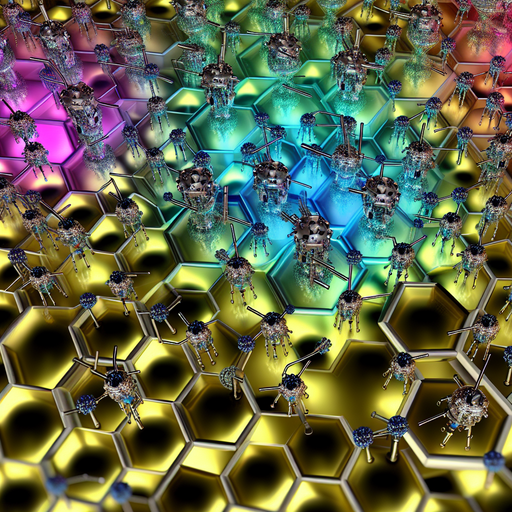Nextcloud and Nanotechnology: The Future of Data Storage
In today’s fast-paced digital world, data has become one of the most valuable assets for businesses and individuals alike. From important documents and photos to sensitive personal information, the amount of data being generated and stored is only increasing with each passing day. This has led to a growing need for reliable, secure, and scalable data storage solutions.
One of the most promising technologies in this space is nanotechnology, which involves the manipulation of matter at the atomic and molecular scale. By harnessing the unique properties of nanoscale materials, researchers are able to develop new and innovative solutions for a wide range of applications, including data storage.
Enter Nextcloud, a popular open-source platform for file synchronization and sharing that offers users the ability to store, access, and collaborate on their data from anywhere in the world. With its focus on security and privacy, Nextcloud has become the go-to solution for individuals and organizations looking to take control of their data.
So, what does nanotechnology have to do with Nextcloud? The answer lies in the potential for nanoscale materials to revolutionize the way data is stored and accessed. One promising application of nanotechnology in data storage is the development of new types of storage media that are smaller, faster, and more energy-efficient than traditional hard drives and solid-state drives.
By incorporating nanoscale materials such as carbon nanotubes or magnetic nanoparticles into the design of storage devices, researchers are able to create systems that can store data at a much higher density and with greater reliability. This means that users can store more data in a smaller space, access it more quickly, and ensure that it remains secure and intact for years to come.
In addition to improving the physical storage of data, nanotechnology also has the potential to enhance the security of data stored in Nextcloud. By developing nanoscale encryption techniques that are virtually impossible to crack, researchers can ensure that sensitive information remains safe from prying eyes, whether it’s stored in the cloud or on a local device.
Overall, the combination of Nextcloud and nanotechnology represents a powerful synergy that has the potential to transform the way we store and access data. By leveraging the unique properties of nanoscale materials, researchers can create new opportunities for innovation in data storage, leading to faster, more secure, and more efficient solutions for individuals and businesses alike.
As we look to the future, it’s clear that the marriage of Nextcloud and nanotechnology holds promise for a wide range of applications beyond data storage, from improved data security to faster data transfer speeds. By continuing to invest in research and development in this exciting field, we can unlock the full potential of these technologies and create a more connected and secure world for all.
